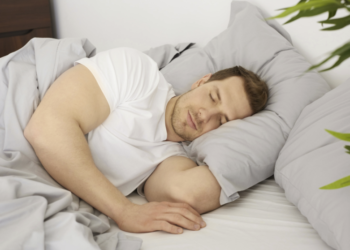For a lot of people sleeping disorder is a big problem. Sleeping is an important part of our day. This is the time that the body and mind gets to rest, resuscitate, and prepare for the busy day that is in store for them the next morning. It has been estimated that over 30 percent of Americans suffer from some form of sleeping disorder.
One of the most well known sleeping disorder is insomnia. It is estimated that over 15 percent of Americans suffer from this sleeping disorder. Insomnia is characterized by the body’s habitual inability to fall or stay asleep for long periods of time. In itself insomnia is not considered a disease, but rather it is a symptom. Some of the cause why people get insomnia includes: stress, psychological reasons, consumption of too much caffeine, and bad sleeping habits.

But sleeping disorders does not stop here. There are many other different types of sleeping disorder. This list includes:
Snoring- This is one of the most common sleeping disorder. This is when individuals who are asleep produce rough, raspy, noises while in the act of sleeping due to an open mouth. This causes the soft palate and the uvula to vibrate. It can also be caused by an obstruction in the breathing pathway of a person. Some attribute snoring to poor breathing pattern, and allergies.
Sleepwalking- This also goes by the name somnambulism and noctambulism. This is when individuals walk in their sleep or do other action associated with the state of wakefulness. While with some people sleep walking is harmless, to others this becomes a health hazard, since they pose some danger to themselves. Some have inadvertently hurt themselves while sleepwalking. It has been projected that 10 percent of all people will experience sleep walking at some time in their life!
Narcolepsy- This is when individuals are suddenly and uncontrollably fall asleep. Sometimes this is even occurs with hallucinations, and paralysis. This condition is chronic. As of now there is no known cure for narcolepsy. But this condition can be managed with medication.
Symptoms of a sleeping disorder
Now a lot of people who are suffering from a sleeping disorder are not even aware that they have a sleeping disorder. Some of the symptoms that are associated with sleeping disorders include:
- feeling lethargic, or sleepy all throughout the day
- suddenly falling asleep during daytime
- having an extremely difficult time falling asleep
- having a hard time concentrating during work or school
Some tips on how to sleep better at night:
- Lying on your back aggravates snoring. Individuals who snore should try lying on their side. This will help to lessen snoring.
- Avoid caffeine. Caffeine is a stimulant. A lot people who suffer from insomnia do so because they consume too much caffeine. This should especially be avoided during night time, when individuals are just about getting ready to go to sleep.
- Those who have narcolepsy- taking naps during the day can help individuals remain alert. Also, some exercise will help get rid of sluggishness.
- Individuals should not force themselves to fall asleep if they do not feel sleepy. This will only add additional stress, and frustration to them and make it all the more harder for them to fall asleep.
Having a sleeping disorder can be extremely frustrating. The good news is that making some lifestyle changes, or seeking the help of a medical expert can help improve this condition.











